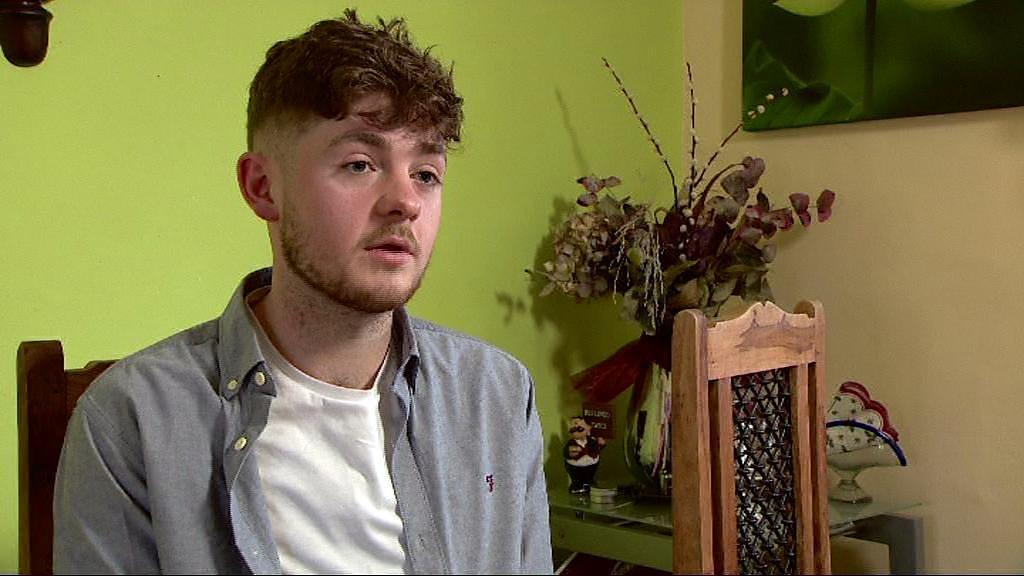Brexit 'causing' more British nationals to become Irish
- Published
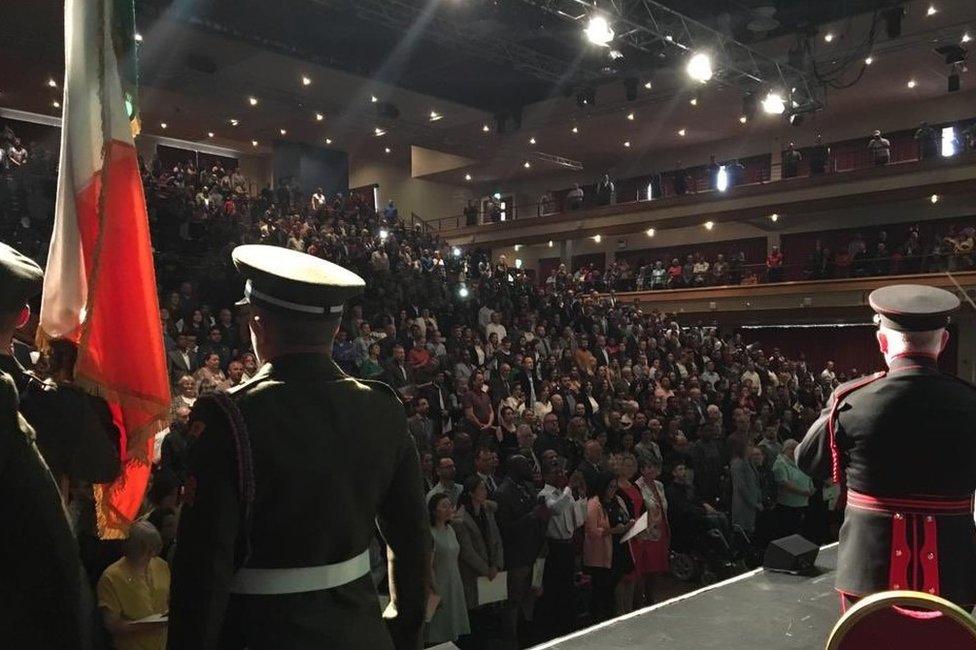
At a citizenship ceremony last month, 2,400 new Irish citizens stood up for the national anthem
The number of British nationals applying for Irish citizenship has risen significantly since the Brexit referendum almost three years ago.
Irish citizenship ceremonies were first introduced in 2011, and for the first four years applications from Britons averaged about 60 a year.
In 2016, the year of the Brexit vote, there were 568 British applicants.
The number grew to 860 in 2017 and last year more than 1,200 Britons applied to become Irish citizens.

The upward trend appears to be continuing this year.
More than 600 applications had been received by the end of May. That figure is expected to rise during the latter half of 2019.
The figures mirror the flood of applications for Irish passports.
In the year before the Brexit vote, there were more than 46,000 applications from Great Britain, but last year that more than doubled to over 98,500.
The current minimum waiting time for a first-time passport application from Great Britain, external is 72 working days - nearly three and a half months.

Applying for Irish citizenship is a separate and distinct process from applying for an Irish passport, but in order to get an Irish passport, you must first be an Irish citizen.
Irish citizenship can be acquired in a number of ways - through place of birth; Irish descent; marriage, adoption or naturalisation (the length of time an applicant has been resident in Ireland).
Citizenship is automatic for many people, such as those born on the island of Ireland before 2005 or those with a parent who is an Irish-born citizen.
Others must apply to the Department of Justice for citizenship.
While attending the most recent citizenship ceremony in April, Irish Justice Minister Charlie Flanagan remarked on the "significant numbers" of applicants originating from the UK.
Just over 300 British nationals were among the 2,400 new Irish citizens congratulated by the minister.
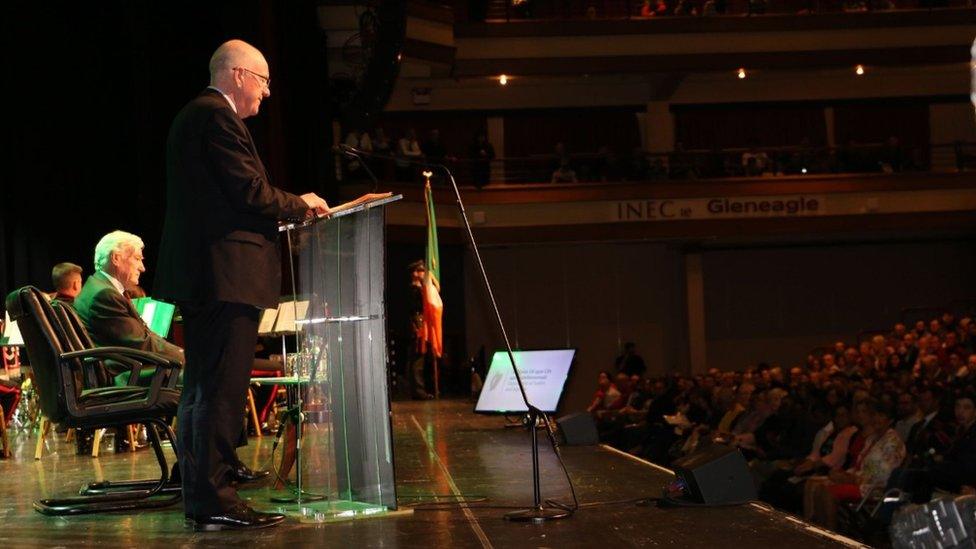
Justice Minister Charlie Flanagan addressed the citizenship ceremony in Killarney
BBC News NI asked the department if it was linking the recent rise in British applications to the UK's decision to leave the EU.
A department spokesman agreed the figures showed an increasing pattern since the referendum in June 2016.
"It is reasonable to attribute this steady rise in applications from British nationals over the last three years to concerns around the outcome of the Brexit process," the spokesman added.
Among Ireland's new citizens are Welsh ex-pat Laurie Kearon and "Lancashire lass" Stephanie McCorkell.
Both women have a similar story to tell.
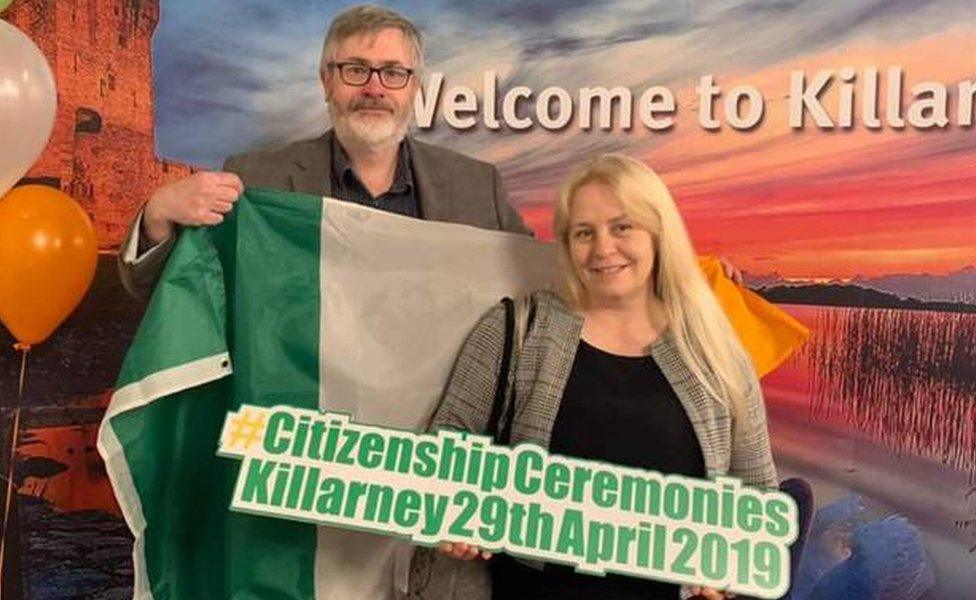
Laurie Kearon and her Irish husband at the most recent citizenship ceremony last month
Both have lived in the Republic of Ireland for decades, retaining their British passports and identity. But fears over Brexit prompted them to seek Irish citizenship.
Read more: Laurie and Stephanie's stories
British nationals are the second biggest group of non-Irish residents in the Republic of Ireland.
The most recent Irish census, carried out in April 2016, found there were just over 103,000 residents who described themselves as British.
In immigration terms, they were outnumbered only by Polish citizens who totalled more than 122,500 in April 2016.

Up until the year after Brexit, British nationals made up just a tiny minority of those seeking a declaration of Irish citizenship.
In 2012 for example, the Dublin government issued more than 25,000 certificates of Irish nationality to people from around the world, but just 85 of those documents (0.3%) were granted to Britons.
In 2013, when more than 24,000 certificates were issued, just 55 (0.2%) were given to British people.
But between 2016 and 2017, the number of successful British applicants rocketed by more than 400%, increasing from 98 certificate recipients to 526.
The number increased again last year, when 687 British people received certificates of nationality from the Irish government.

So far this year, the Irish Department of Justice has issued 312 certificates of Irish nationality to British applicants, and we're not yet half way through 2019.
It used to be the case that anyone born on the island of Ireland, including Northern Ireland, was automatically entitled to Irish citizenship and therefore EU citizenship.
The 1998 Good Friday Agreement, an international peace treaty, gave those from Northern Ireland the right to identify as Irish or British or both.
But by 2004, the Irish government said the law was being exploited by "citizenship tourism", claiming that foreign women were travelling to Ireland in late pregnancy in order to get an EU passport for their babies.
It called a referendum, in which Irish voters overwhelmingly backed the tightening of the rules, with 79% voting to end the automatic citizenship right for all babies born in Ireland, external.
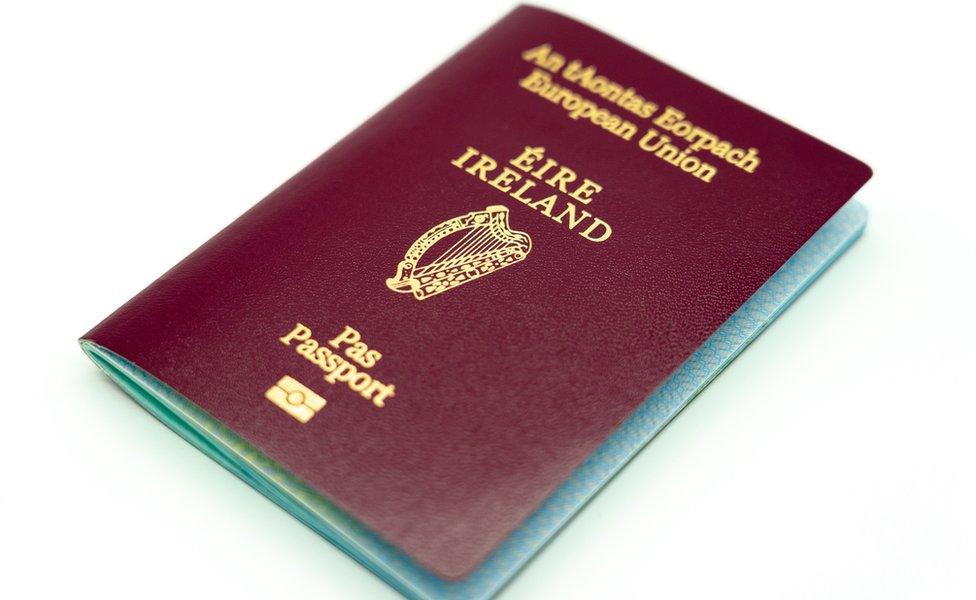
In order to get an Irish passport, you must first be an Irish citizen.
People who qualify automatically for Irish citizenship:
Anyone born on the island of Ireland (including Northern Ireland) before 1 January 2005
Anyone born on the island of Ireland after 1 January 2005, with at least one parent who was an Irish citizen at the time of the child's birth
Anyone born on the island of Ireland after 1 January 2005, who has a British parent or a parent who is entitled to live in the Republic of Ireland or Northern Ireland without restriction on their residency
Anyone born on the island of Ireland to a foreign parent who was legally resident in Ireland for three out of four years prior to the child's birth
Anyone born on the island of Ireland to a parent who has been granted refugee status
Anyone born anywhere in the world with at least one parent who was born on the island of Ireland and was an Irish citizen at the time of the child's birth
Anyone born anywhere in the world who is adopted as a child by an Irish citizen
People who do not qualify automatically for Irish citizenship but are still entitled to apply:
Anyone born anywhere in the world to an Irish citizen who was also born outside Ireland can claim Irish citizenship by registering their own birth in the Irish government's Foreign Births Register, external
Anyone born anywhere in the world with at least one grandparent who was born on the island of Ireland and was an Irish citizen at the time of the grandchild's birth
- Published2 June 2019
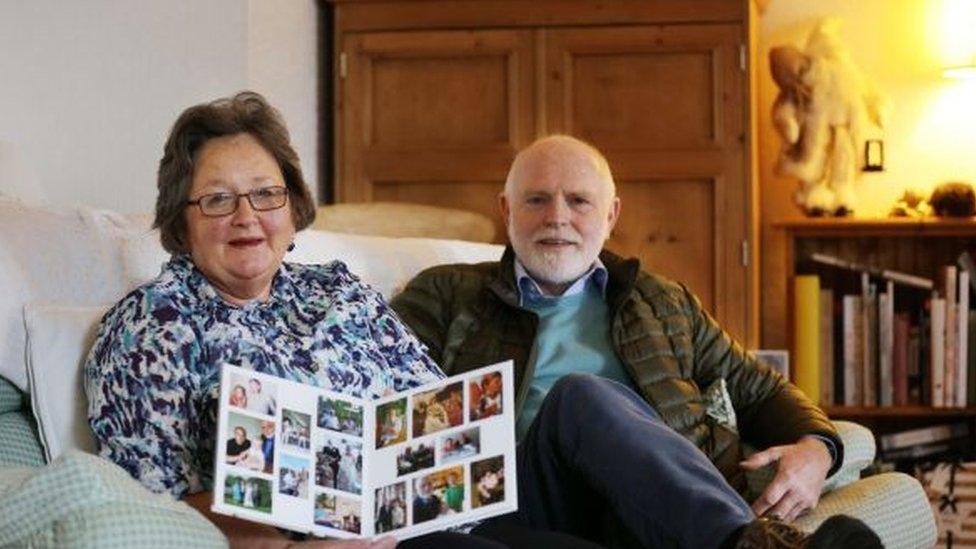
- Published30 November 2018
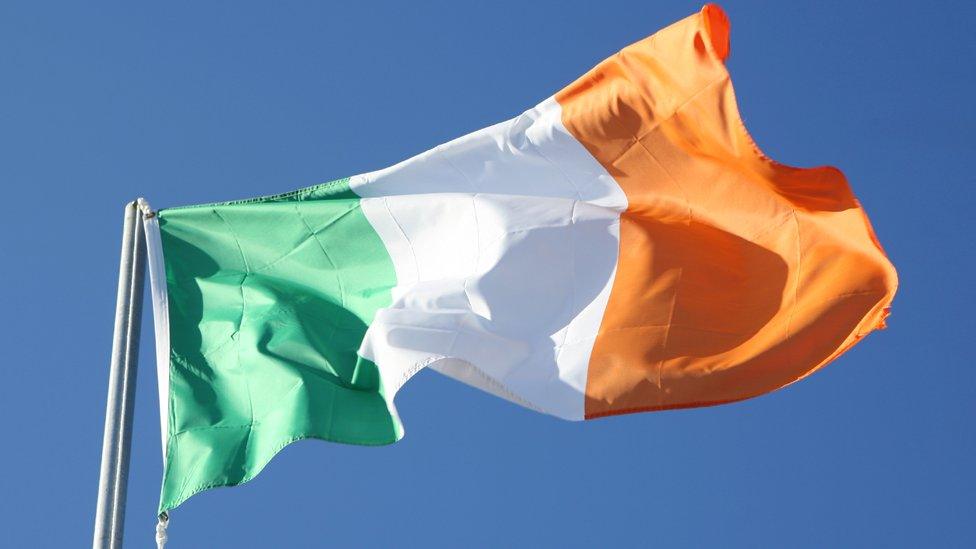
- Published30 October 2018
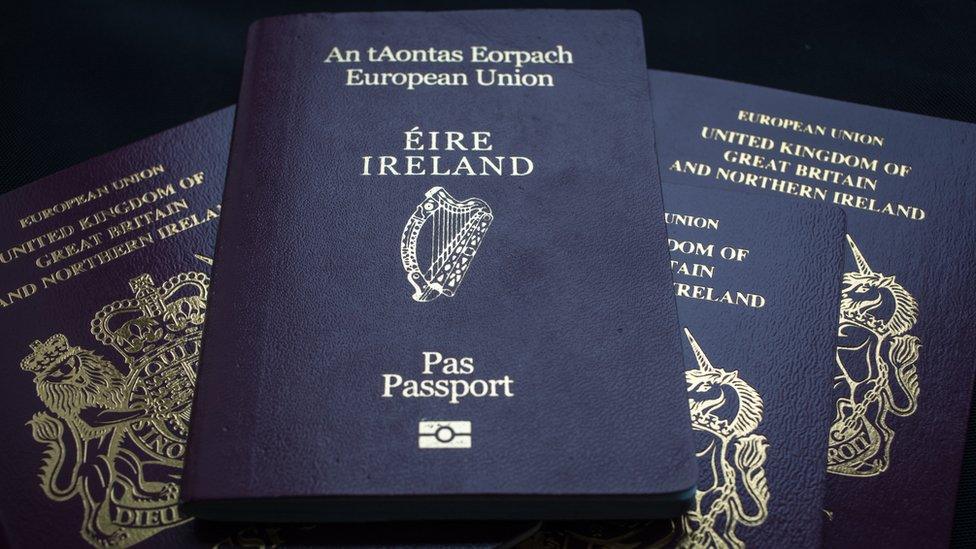
- Published29 March 2018
